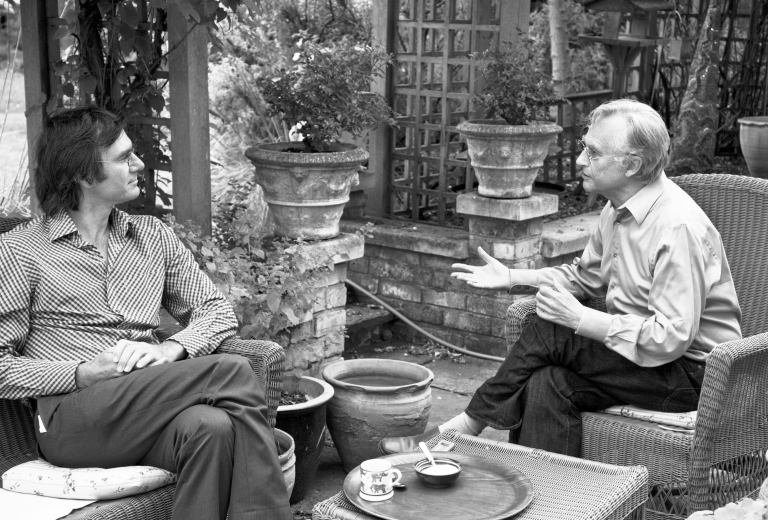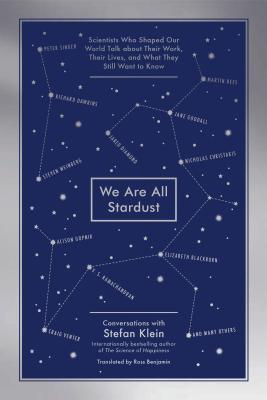Aside from his long-held post as professor for the public understanding of science at Oxford, evolutionary biologist Richard Dawkins has become widely known for his increasingly public advocacy for a Darwinian worldview. His personal and combative campaign against religion has earned Dawkins the nickname, “Darwin’s Rottweiler,” but his outlook is not purely negative–nor are his feelings on religious matters universally critical. Read on for exclusive insights into his thought process.
The following conversation is an excerpt from an interview given by physicist and science writer Stefan Klein in his new book, We Are All Stardust. The title features detailed ruminations from 19 paradigmatic figures across scientific disciplines, from primatologist Jane Goodall to physicist Steven Weinberg, anthropologist Sarah Hrdy to neuroscientist V. S. Ramachandran, and many more, including the rest of this particular conversation with Richard Dawkins.
Below, Stefan Klein’s comments are noted in italics while those from Richard Dawkins are bold.

Richard Dawkins: © Photo Immo Klink
Professor Dawkins, on a cruise with invited guests you wore an interesting T-shirt. It said, “Atheists for Jesus.” Did you discover your love for Christianity under the influence of the tropical sun?
The point I wanted to make was that Jesus was a good man, and that a man of his time had to be religious because everybody was. But I suspect that if he had the knowledge we have today, he probably would have been an atheist, and he probably would have been a good man.
He replaced the rule “an eye for an eye, a tooth for a tooth” with the commandment to love your enemies and turn the other cheek. You’ve written before that, in a way, his teaching is anti-evolutionary.
That’s right. Anti-Darwinian, I’d say, because Darwinism is going to explain only a certain limited amount of niceness. But humans do seem to be super-nice—at least some of them, or even quite a lot of them. Maybe Jesus was one of those. And that’s something we should contemplate, that’s something we should try to identify, where this super-niceness comes from, and try to spread it around.
You’ve very eloquently made this point before, that we should cultivate super-niceness. But you’ve also written that, from a Darwinian point of view, super-niceness would be plain dumb.
Yes, that’s right, from a Darwinian point of view it would be dumb, because it’s counter-Darwinism. We have lots of examples of this. Contraception is anti-Darwinian, adoption is anti-Darwinian, but so is super-niceness, so is being kind, generous, giving to charity, giving to famine relief—all those sorts of things are very un- Darwinian and should be cultivated.
Because in your view, they wouldn’t help you, nor would they help you pass on your genes?
Yes.
Evolution is a cruel business, isn’t it?
Very cruel. Darwin himself noticed that. Many people have seen this as well.
And we have good reason to assume that Darwin’s laws govern our existence to this day.
Yes, which makes it all the more surprising that we do seem to be capable of super-niceness.
When you wrote The Selfish Gene over thirty years ago, you used strong metaphors to describe those laws of evolution. You referred to us humans and other animals, for example, as “robot vehicles blindly programmed to preserve the selfish molecules known as genes.” Would you still phrase this the same way?
Yes, I would.
One of your foreign publishers supposedly didn’t sleep for three nights when he first came into contact with your books, because the message seemed to him so cold and dark. How did you actually feel while writing them?
Not dark—exhilarated, really, by the joy of understanding. But I never thought that you should import moral value judgment lessons from nature anyway.
Want to hear more from scientific pioneers? You can buy Stefan Klein’s book below:
Amazon | B&N | Indiebound | Workman






No Comments